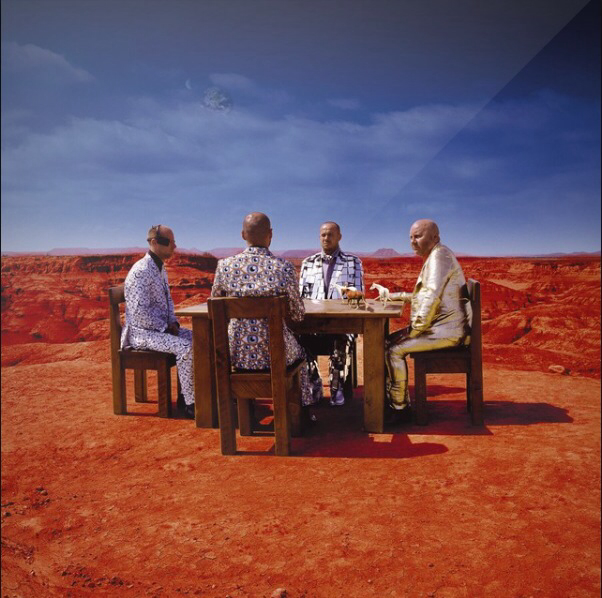Few would dispute the fact that Muse have been one of the most consistently successful British rock bands of the last twenty years. The unchanging power-trio line up has steadily mined a seem of modern rock that has seen them release a string of high-charting albums, which has seen them plastered across the front pages of magazines, while they headlined festivals and play to adoring sell-out crowds. They have been one of the UK’s great musical success stories since the start of this millennium, though listening to Black Holes and Revelations, quite why that should be the case is something of a mystery.
Black Holes and Revelations is one of Muse’s big sellers, and listening to it a decade after its release, there’s no obvious reason why it sold so well, or why Muse were, and continue to be, so successful. Rising to prominence at the same time as fellow stadium-fillers Coldplay, Muse boasted bigger guitars, an on / off flirtation with progressive rock, and in Matthew Bellamy, a vocalist who sounded very similar to a lot of other vocalists who were all desperately trying to sound a bit like Thom Yorke. There’s nothing specifically bad about their music, but then again, with the exception of some stunt guitar work, a modest obsession with science fiction themes and the tendency to go a bit twiddly from time to time, there’s nothing that particularly makes it stand out either. Some say that Muse are effectively nothing less than Queen for the new millennium, however to these ears they lack the pop-nous, the charm and the magnetic frontman for that comparison to hold any water.
So what is about Muse that impresses the masses so? On a purely technical level, it’s difficult to criticise Muse. All three members of the band are evidently accomplished musicians, however their particular take on bombastic modern rock puts the emphasis on presentation rather than the quality of the material that they play. In that sense Muse are a big band simply because they act like a big band, and as long as people keep coming to their shows they will continue to have the finances to put on the visually-frazzling shows for which they now have a reputation. But what about the music? Does the song writing hold up? To be honest, a lot of their songs lean a little too heavily on dystopian sci-fi themes and political theorising, both of which certainly have their place, but I personally find it easier to connect with lyrical content that says something on a personal level rather than ‘statement pieces’. By aiming to tackle big issues, Muse are certainly ambitious, but it’s ambition at the expense of day to day life.
To be honest a lot of Black Holes and Revelations passes me by in a blur, and while I can be impressed with Muse’s sense of ambition, I’m not entirely sure what they ultimately want to achieve. That is until the closing track “Knights of Cydonia”, when it all falls into place and I finally realise what Muse are all about. Suddenly they make sense, and I gain a certain level of understanding about them that previously eluded me. Basically, in their heart of hearts, for all their vaulting ambition and grand stage presentation of their pyrotechnic hard rock, all that Muse want to be is a Rush tribute act.













No Comment